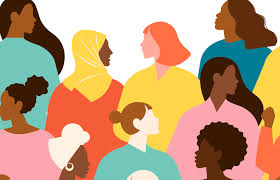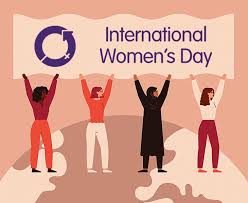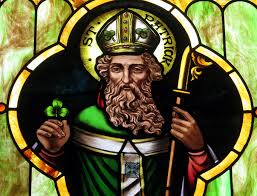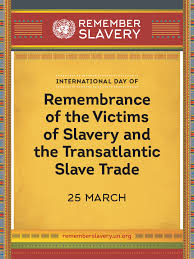1 March – World Day of Zero Discrimination
 On Zero Discrimination Day this year (download brochure), UNAIDS is highlighting the urgent need to take action to end the inequalities surrounding income, sex, age, health status, occupation, disability, sexual orientation, drug use, gender identity, race, class, ethnicity and religion that continue to persist around the world. Inequality is growing for more than 70% of the global population, exacerbating the risk of division and hampering economic and social development. And COVID-19 is hitting the most vulnerable people the hardest—even as new vaccines against COVID-19 are becoming available, there is great inequality in accessing them. Many have equated this to vaccine apartheid.
On Zero Discrimination Day this year (download brochure), UNAIDS is highlighting the urgent need to take action to end the inequalities surrounding income, sex, age, health status, occupation, disability, sexual orientation, drug use, gender identity, race, class, ethnicity and religion that continue to persist around the world. Inequality is growing for more than 70% of the global population, exacerbating the risk of division and hampering economic and social development. And COVID-19 is hitting the most vulnerable people the hardest—even as new vaccines against COVID-19 are becoming available, there is great inequality in accessing them. Many have equated this to vaccine apartheid.
https://spark.adobe.com/page/XBcrhKn6snyky/
8 March – International Women’s Day
 International Women’s Day is a time to reflect on progress made, to call for change and to celebrate acts of courage and determination by ordinary women, who have played an extraordinary role in the history of their countries and communities. The world has made unprecedented advances, but no country has achieved gender equality. Fifty years ago, we landed on the moon; in the last decade, we discovered new human ancestors and photographed a black hole for the first time. In the meantime, legal restrictions have kept 2.7 billion women from accessing the same choice of jobs as men. Less than 25 per cent of parliamentarians were women, as of 2019. One in three women experience gender-based violence, still.
International Women’s Day is a time to reflect on progress made, to call for change and to celebrate acts of courage and determination by ordinary women, who have played an extraordinary role in the history of their countries and communities. The world has made unprecedented advances, but no country has achieved gender equality. Fifty years ago, we landed on the moon; in the last decade, we discovered new human ancestors and photographed a black hole for the first time. In the meantime, legal restrictions have kept 2.7 billion women from accessing the same choice of jobs as men. Less than 25 per cent of parliamentarians were women, as of 2019. One in three women experience gender-based violence, still.
https://www.un.org/en/observances/womens-day
17 March – St Patrick’s Day
 St Patrick – the Patron Saint on Ireland, is celebrated each year on 17 March which is the anniversary of his death in the 5th century. Born in Britain, he was kidnapped at the age of 16 and brought to Ireland. He is credited with bringing Christianity to Ireland, as legend has it, explaining the Holy Trinity (the Father, Son and Holy Spirit) using the three leaves of the Shamrock – the native Irish clover. St Patrick’s Day has been celebrated in Ireland since around the ninth or tenth century. It is now celebrated all over the world, with parades being among the most popular way to celebrate!
St Patrick – the Patron Saint on Ireland, is celebrated each year on 17 March which is the anniversary of his death in the 5th century. Born in Britain, he was kidnapped at the age of 16 and brought to Ireland. He is credited with bringing Christianity to Ireland, as legend has it, explaining the Holy Trinity (the Father, Son and Holy Spirit) using the three leaves of the Shamrock – the native Irish clover. St Patrick’s Day has been celebrated in Ireland since around the ninth or tenth century. It is now celebrated all over the world, with parades being among the most popular way to celebrate!
21 March – International Day for the Elimination of Racial Discrimination
 This year, the International Day for the Elimination of Racial Discrimination is focused on the midterm review of the International Decade for People of African Descent undertaken by the Human Rights Council in Geneva as part of its 43rd session. As the Decade approaches its half-way mark in 2020, a review will take stock of the progress made and decide on further necessary actions. There are around 200 million people identifying themselves as being of African descent living in the Americas. Many millions more live in other parts of the world, outside of the African continent.
This year, the International Day for the Elimination of Racial Discrimination is focused on the midterm review of the International Decade for People of African Descent undertaken by the Human Rights Council in Geneva as part of its 43rd session. As the Decade approaches its half-way mark in 2020, a review will take stock of the progress made and decide on further necessary actions. There are around 200 million people identifying themselves as being of African descent living in the Americas. Many millions more live in other parts of the world, outside of the African continent.
https://www.un.org/en/observances/end-racism-day
25 March – Slavery Remembrance Day
 For over 400 years, more than 15 million men, women and children were the victims of the tragic transatlantic slave trade, one of the darkest chapters in human history. Every year on 25 March, the International Day of Remembrance of the Victims of Slavery and the Transatlantic Slave Trade offers the opportunity to honour and remember those who suffered and died at the hands of the brutal slavery system. The International Day also aims to raise awareness about the dangers of racism and prejudice today.
For over 400 years, more than 15 million men, women and children were the victims of the tragic transatlantic slave trade, one of the darkest chapters in human history. Every year on 25 March, the International Day of Remembrance of the Victims of Slavery and the Transatlantic Slave Trade offers the opportunity to honour and remember those who suffered and died at the hands of the brutal slavery system. The International Day also aims to raise awareness about the dangers of racism and prejudice today.
https://www.un.org/en/events/slaveryremembranceday/



